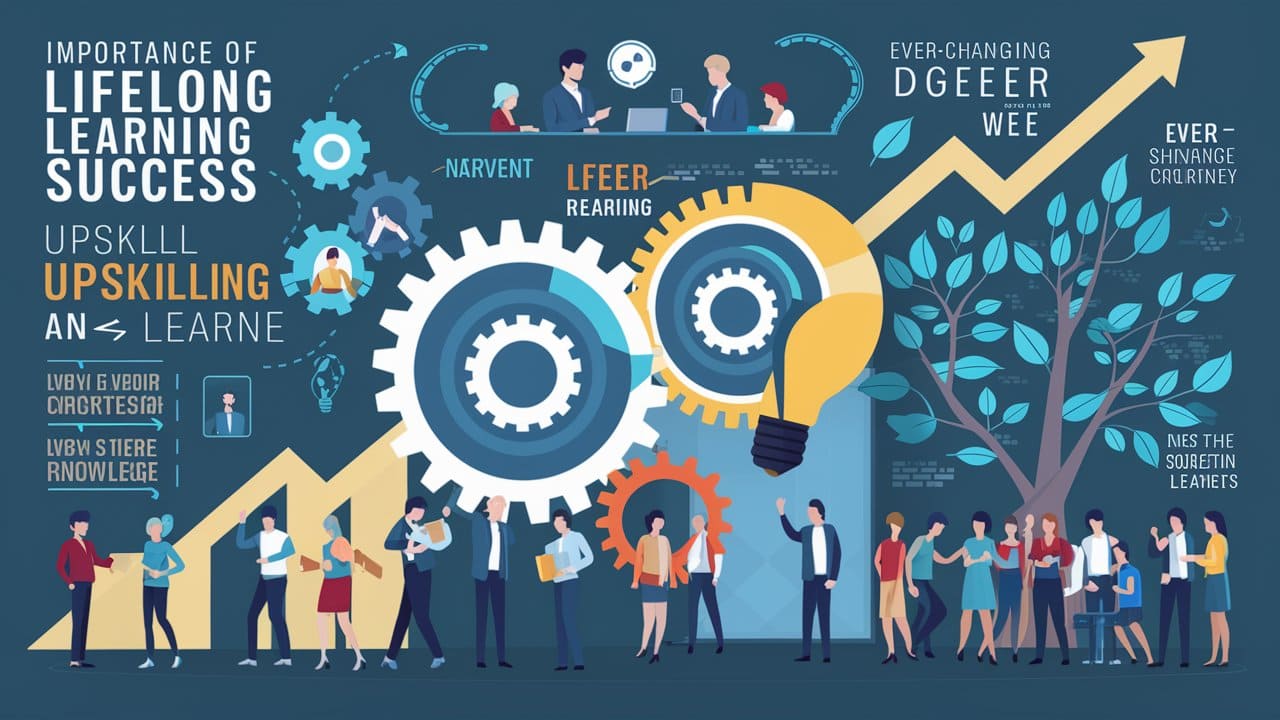Upskilling and Reskilling: Why Lifelong Learning is Key to Career Success
In today's fast-paced and ever-changing job market, the concept of lifelong learning has become more relevant than ever. The rapid advancement of technology and evolving industry standards mean that the skills required for many jobs are continually shifting. To stay competitive and succeed in their careers, professionals must embrace upskilling and reskilling as integral parts of their career strategy.
Understanding Upskilling and Reskilling
Upskilling involves learning new skills or improving existing ones to enhance job performance in a current role. This might include taking advanced courses in data analysis for a marketing professional or mastering new programming languages for a software developer.
Reskilling, on the other hand, focuses on acquiring a new set of skills that allow an individual to transition into a different role or industry. For example, a manufacturing worker might reskill to move into an IT role.
The Importance of Lifelong Learning
Adaptability to Change
The job market is dynamic, with industries constantly evolving due to technological advancements and economic shifts. Lifelong learning ensures that professionals can adapt to these changes rather than becoming obsolete. For instance, the rise of artificial intelligence (AI) has created new job roles that require specific expertise, making it crucial for workers to adapt by learning new skills.
Career Advancement
Upskilling can open doors to promotions and higher-level positions. By continually improving and expanding their skill sets, employees demonstrate their commitment to growth and their ability to take on more complex tasks and responsibilities. This makes them valuable assets to their employers and more competitive candidates in the job market.
Job Security
The fear of job displacement due to automation and other technological advances is a significant concern for many workers. By proactively upskilling and reskilling, individuals can safeguard their careers. Employers are more likely to retain employees who show a willingness to learn and adapt, reducing the risk of being replaced by automation.
Personal Fulfillment
Lifelong learning contributes to personal growth and satisfaction. The process of acquiring new knowledge and skills can be incredibly rewarding and can lead to increased confidence and a sense of achievement. It also keeps the mind engaged and active, contributing to overall well-being.
Strategies for Lifelong Learning
Online Courses and Certifications
Platforms like Coursera, Udemy, and LinkedIn Learning offer a wide range of courses and certifications to help professionals upskill and reskill at their own pace. These courses often cover the latest trends and technologies, providing valuable and up-to-date knowledge.
Workshops and Seminars
Attending industry-specific workshops and seminars can provide hands-on experience and networking opportunities. These events often feature experts who share insights and practical skills that are immediately applicable to the workplace.
Mentorship and Coaching
Seeking mentorship or career coaching can provide personalized guidance and support. Mentors can offer valuable advice based on their experiences and help identify areas for growth and development.
On-the-Job Training
Many companies offer training programs and opportunities for employees to learn new skills within their current roles. Taking advantage of these opportunities can help professionals stay current and competitive.
Conclusion
In an era where change is the only constant, the importance of lifelong learning cannot be overstated. Upskilling and reskilling are not just trends but essential strategies for career success. By embracing a mindset of continuous learning, professionals can ensure they remain adaptable, valuable, and fulfilled in their careers. Investing in your own development is the best way to navigate the uncertainties of the job market and achieve long-term career success.




